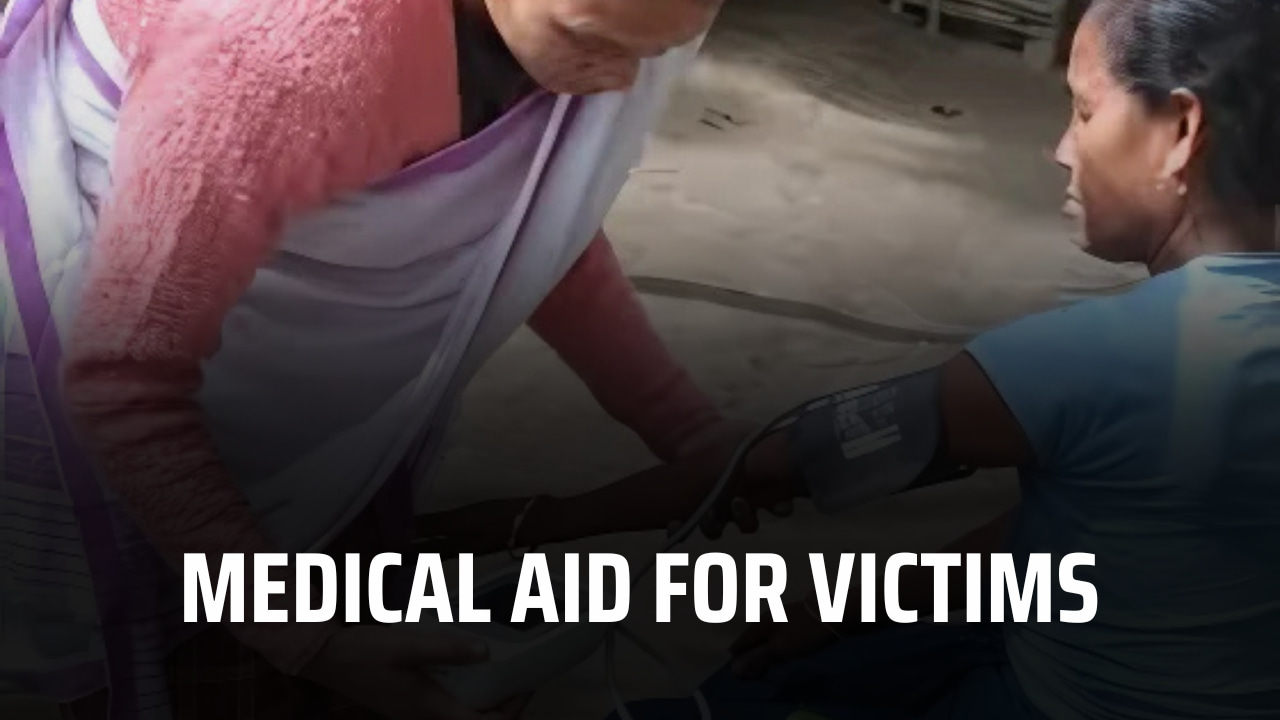Healthcare plays a crucial role in the rehabilitation and support of victims of violence, ensuring their physical and mental well-being. In India, various government initiatives aim to provide medical assistance and psychosocial support to victims, with One Stop Centres (OSCs) playing a pivotal role in this mission. These centers offer immediate medical aid, legal assistance, and shelter to those in need, ensuring that victims receive holistic care to recover from their traumatic experiences.
Among the states actively working towards victim assistance, Assam has emerged as a leader in strengthening its healthcare response through the establishment of OSCs. These centers operate under the Ministry of Women and Child Development (MWCD) and collaborate with local healthcare institutions to provide immediate and comprehensive medical support. By integrating healthcare services with legal and psychological aid, OSC Assam ensures that victims receive the necessary assistance to regain their health and dignity.
The presence of OSCs in Assam has significantly improved the accessibility of medical aid for victims, particularly women and children who have suffered from gender-based violence. By offering emergency treatment, counseling, and forensic examinations, these centers bridge the gap between healthcare and justice, enabling survivors to heal both physically and emotionally. This article explores the role of OSC Assam in providing medical assistance, the range of services offered, and the impact of these centers on the community.

Understanding One Stop Centres (OSCs)
One Stop Centres (OSCs) are government-established facilities designed to provide integrated support and assistance to victims of violence. Launched under the Nirbhaya Fund in 2015, these centers aim to provide a safe space where survivors can access multiple services under one roof. The services include:
- Medical assistance
- Legal aid and police assistance
- Counseling and psychological support
- Temporary shelter
- Support for filing cases and legal procedures
OSCs function in coordination with district hospitals, police departments, and local NGOs to ensure that victims receive timely and effective care. In Assam, these centers have expanded their reach, offering specialized services to cater to the needs of different sections of society, including rural and tribal populations.
The Role of OSC Assam in Providing Medical Aid
1. Immediate Medical Treatment
One of the primary services offered by OSC Assam is immediate medical attention to victims of violence, including domestic abuse, sexual assault, and trafficking. The centers are equipped with first-aid facilities and work closely with government hospitals and healthcare professionals to ensure victims receive proper medical care without delay.
Victims are often brought to OSCs in distressing conditions, requiring urgent medical intervention. The trained staff at OSCs assess their condition and provide essential medical support, including:
- Wound treatment and pain management
- Emergency contraception and STI treatment
- Pregnancy-related medical care for sexual violence survivors
2. Forensic Medical Examination
For victims of sexual assault and severe physical abuse, forensic medical examinations are crucial for legal proceedings. OSC Assam ensures that victims have access to trained medical professionals who conduct these examinations with sensitivity and confidentiality. These examinations help in collecting evidence that can be used in court to ensure justice for the victims.
3. Psychological and Mental Health Support
Beyond physical injuries, victims often suffer from severe psychological trauma. OSC Assam provides mental health counseling and psychiatric consultations to help survivors cope with their experiences. Many centers have trained counselors and psychologists who assist victims in overcoming depression, anxiety, and post-traumatic stress disorder (PTSD).
Key mental health services include:
- One-on-one counseling sessions
- Group therapy and peer support programs
- Referrals to psychiatric institutions for severe cases
Coordination with Hospitals and Health Institutions
To enhance the quality of medical aid provided, OSC Assam has established partnerships with government hospitals and private healthcare institutions. This coordination ensures that victims receive specialized treatments such as:
- Surgical procedures for severe injuries
- Rehabilitation programs for long-term care
- Nutritional and health check-ups for vulnerable groups
OSCs also play a role in raising awareness among healthcare professionals about handling victims sensitively, ensuring that they receive non-judgmental and supportive care.
Challenges Faced by OSC Assam
Despite their significant role, OSCs in Assam face several challenges, including:
- Shortage of trained medical professionals to handle cases sensitively
- Limited awareness among victims about the existence of OSC services
- Infrastructural constraints, particularly in remote and rural areas
- Social stigma that prevents victims from seeking medical and legal assistance
To overcome these challenges, government initiatives are focusing on expanding awareness campaigns, increasing funding, and strengthening coordination between OSCs, hospitals, and law enforcement agencies.
Impact of OSC Assam on Victims and Society
The establishment of OSCs in Assam has had a transformative impact on victims and the broader society. Some of the notable outcomes include:
- Increased access to healthcare for women and children affected by violence
- Higher reporting rates of gender-based crimes due to the support provided by OSCs
- Improved rehabilitation and reintegration of survivors into society
- Strengthened legal processes through better forensic and medical documentation
The continuous efforts of OSC Assam have not only provided relief to victims but also encouraged societal change, promoting a safer environment for vulnerable populations.